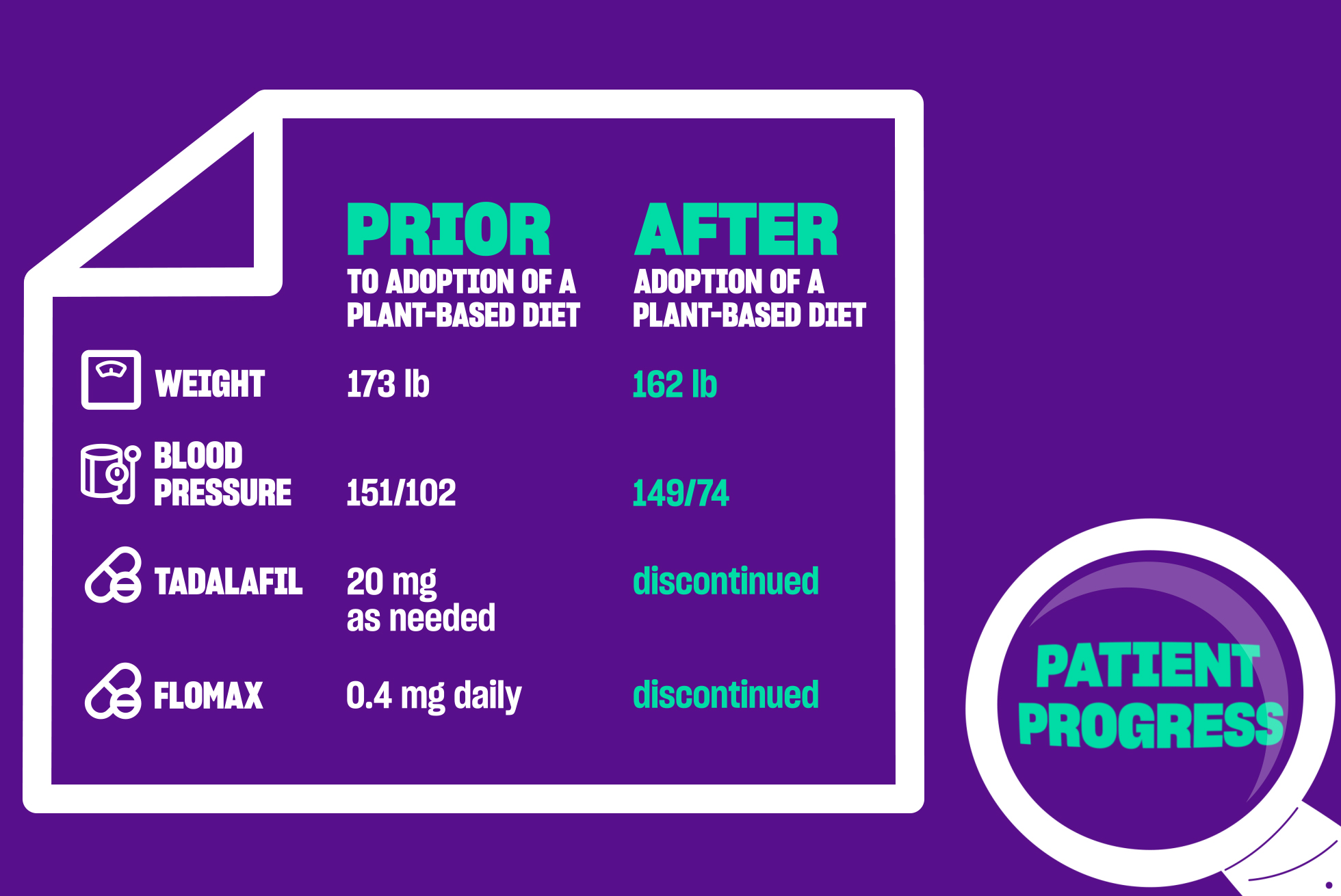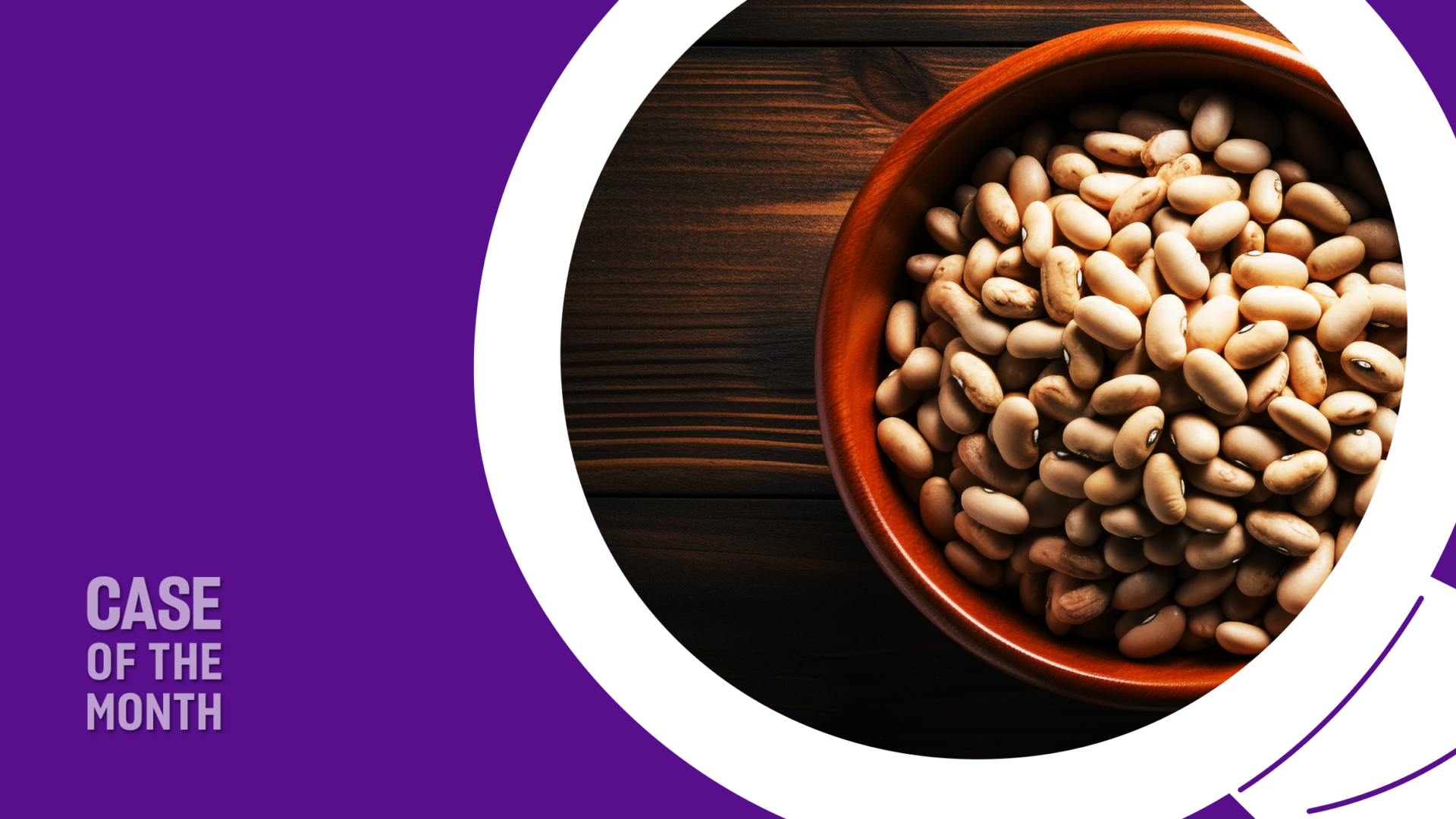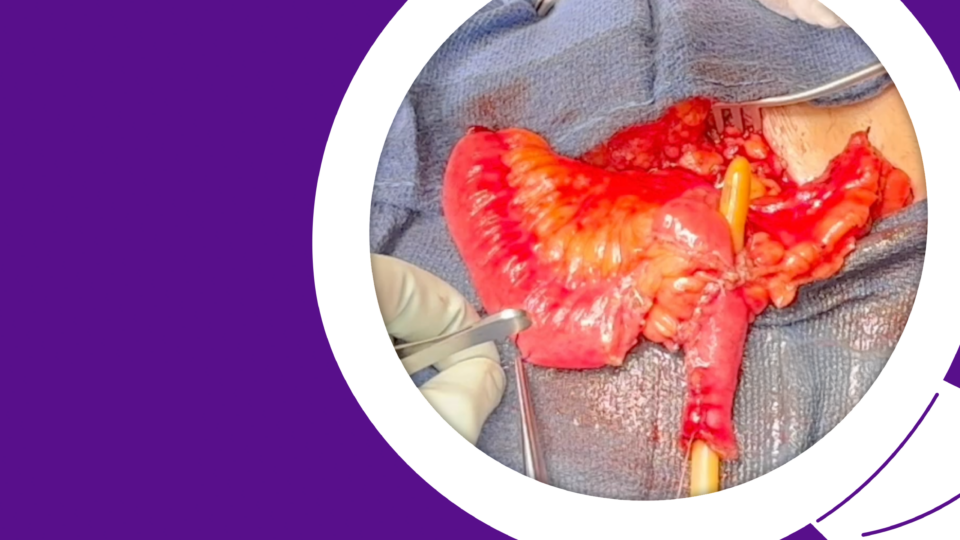This month’s case presentation describes a patient with multiple urological complaints, including erectile dysfunction, who experienced significant improvements after adopting a healthy plant-based diet.
As urologists, we have the power not only to help our patients with their genitourinary issues but also to optimize their overall health and longevity. Counseling patients about eating more healthy plant-based food is an important way to promote cardiovascular and metabolic health, which has also been associated with better erectile and urinary function—a win-win.
Urologists may not have the time, resources, or expertise to directly support patients with a change in nutrition. However, building collaborations with qualified professionals and providing referrals are essential ways to deliver additional patient support.
Below, we share how we counseled the patient on healthy plant-based eating. We also outline the resources and referral networks we use to connect patients with additional information and expert support.
Case Highlights:
- The patient was on tadalafil to manage his erectile dysfunction and Flomax for urinary symptoms.
- He expressed confidence in making a lifestyle change and was referred to a health coach and dietitian.
- After several months on a vegan diet, he discontinued both medications, lost weight, and improved his hypertension.
- Patients can be directed to the Physicians Committee for Responsible Medicine, Plant Powered Metro New York, and other resources for further support in adopting a plant-based diet.
Patient Case
The patient, a 69-year-old male with a history of hypertension and being overweight, presented to the urology clinic with erectile dysfunction and lower urinary tract symptoms. He was taking tadalafil (20 mg, as needed) and Flomax (0.4 mg, daily) for these conditions.
The patient had read about a lower risk of erectile dysfunction with a plant-based diet and was interested in adopting the diet. He expressed motivation to change his diet within the next month and scored his confidence in making a lifestyle change as a 9 out of 10.
Because the patient was ready to change his diet, we discussed his goals and what resources he would need. We referred the patient to a health coach and dietitian experienced with plant-based nutrition and provided a list of resources. During subsequent visits, we reviewed his action plan, discussing progress and barriers.
After successfully adopting a vegan diet for several months, the patient was able to discontinue medication for erections and urinary symptoms. In addition, at the most recent follow-up, he had lost 11 pounds and his blood pressure had improved (Figure 1).

These health improvements provided satisfaction and motivation for him to continue the plant-based diet.
Discussion
Plant-based diets are popular due to the many benefits for health and the environment.
According to the Academy of Nutrition and Dietetics, vegetarian and vegan diets are nutritionally adequate at all stages of life and provide health benefits.1 Indeed, there is a large body of literature supporting the role of plant-based diets in the prevention and management of chronic diseases, including diabetes and cardiovascular disease. This is particularly germane to erectile function, often called the “canary in the coal mine” (meaning an early warning sign) for cardiovascular disease.2
Several recent studies have looked at the role of plant-based dietary patterns in erectile function. For example, using data from a survey performed in the United States, Carto et al. reported that greater consumption of a healthy plant-based diet (e.g., fruits, vegetables, grains, and legumes) was associated with a significantly lower risk of erectile dysfunction after adjusting for other factors.3 Similar results were reported by Yang et al. in a large cohort of male health professionals, in which greater consumption of healthy plant-based food was associated with a lower risk of erectile dysfunction.4
With regard to lower urinary tract symptoms, a study from Australia reported that a “vegetable” dietary pattern was associated with significantly lower odds of surgically treated benign prostatic hyperplasia.5 Even among patients with a history of prostate cancer treated by radical prostatectomy or radiation therapy, consuming more plant-based food and less animal-based food was associated with significantly better scores for posttreatment erectile function and urinary quality of life.6
National guidelines recommend notifying patients that erectile dysfunction is a risk factor for cardiovascular disease and recommending lifestyle modifications like diet and physical activity.7 Healthful behavior change is an individualized process that evolves over time. In the field of lifestyle medicine, the transtheoretical model is often used to conceptualize the stages of change, which includes precontemplation, contemplation, preparation, action, maintence, and termination.8 The goal is to identify each patient’s readiness to make a change in a particular behavior, such as their diet, and to help them develop an action plan if they are considering a change before the next visit. A helpful strategy is for the patient to set SMART goals (“Specific, Measurable, Achievable, Relevant, and Timebound”) for the desired behavior.
To direct patients to more information, the Physicians Committee for Responsible Medicine website offers numerous handouts and recipe guides for plant-based nutrition, as well as a directory to locate nearby health professionals with expertise in plant-based nutrition. There are also many online programs with dietitians and health coaches who can provide more hands-on support for patients, such as the 21-Day Plant Powered Jumpstart program, offered virtually by Plant Powered Metro New York.
References
1. Melina V, et al. J Acad Nutr Diet. 2016;116(12):1970-1980. DOI.
2. Yannas D, et al. Int J Impot Res. 2024;36(4):452–453. DOI.
3. Carto C, et al. Urology. 2022;161:76–82. DOI.
4. Yang H, et al. BJU Int. 2022;130(4):514–521. DOI.
5. Ambrosini GL, et al. BJU Int. 2008;101(7):853–860. DOI.
6. Loeb S, et al. Cancer. 2024;130(9):1618–1628. DOI.
7. Burnett AL, et al. J Urol. 2018 Sept;200(3):633–641. DOI.
8. Prochaska JO, Velicer WF. Am J Health Promot. 1997;12(1):38–48. DOI.






